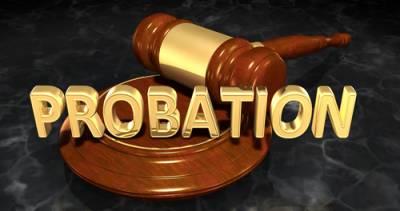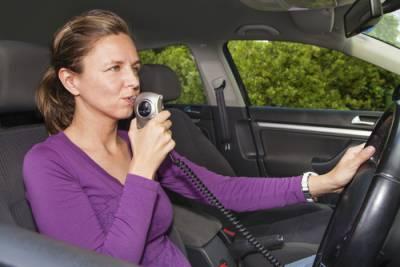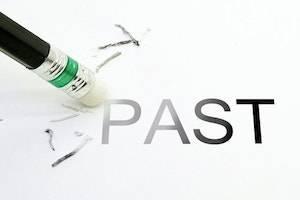
 Illinois became the 11th state to legalize the recreational sale and use of marijuana and marijuana products Friday. This was a historic moment in United States history, as Illinois passed the bill that permits both usage and sales of recreational cannabis entirely through legislation, rather than a voter referendum. The new law significantly alters how the state will handle cannabis. It will now treat it and tax it similarly to the way the state handles alcohol. Though recreational marijuana will be legal in Illinois, there are still rules that you must follow, otherwise, you face penalties.
Illinois became the 11th state to legalize the recreational sale and use of marijuana and marijuana products Friday. This was a historic moment in United States history, as Illinois passed the bill that permits both usage and sales of recreational cannabis entirely through legislation, rather than a voter referendum. The new law significantly alters how the state will handle cannabis. It will now treat it and tax it similarly to the way the state handles alcohol. Though recreational marijuana will be legal in Illinois, there are still rules that you must follow, otherwise, you face penalties.
Beginning in January 2020, recreational marijuana will be available for purchase by any citizen over the age of 21 at any of the 20 medical marijuana dispensaries throughout the state. By mid-2020, additional licenses will be given to other recreational stores, processors and cultivators, though local governments have the power to decide whether recreational marijuana businesses operate in their area.
 There are scores of traffic violations you can commit from behind the wheel -- speeding, running a stop sign, not using your blinkers -- the list goes on. One of the more serious traffic offenses you can commit is reckless driving. In Illinois, reckless driving can result in significant consequences, because reckless driving is not just a traffic ticket -- it can result in a misdemeanor or a felony charge, depending on your circumstances. If you have been charged with reckless driving, it is important that you understand the charges and related penalties.
There are scores of traffic violations you can commit from behind the wheel -- speeding, running a stop sign, not using your blinkers -- the list goes on. One of the more serious traffic offenses you can commit is reckless driving. In Illinois, reckless driving can result in significant consequences, because reckless driving is not just a traffic ticket -- it can result in a misdemeanor or a felony charge, depending on your circumstances. If you have been charged with reckless driving, it is important that you understand the charges and related penalties.
According to Illinois traffic laws, reckless driving occurs when a person either:
 When you find yourself in trouble with the law, there are dozens of outcomes that could arise from an arrest and conviction. Most of the time, the biggest fear offenders have is going to jail, but not all crimes carry prison sentences. Even if you are convicted of a crime that carries prison time, you will not necessarily be sentenced to prison time.
When you find yourself in trouble with the law, there are dozens of outcomes that could arise from an arrest and conviction. Most of the time, the biggest fear offenders have is going to jail, but not all crimes carry prison sentences. Even if you are convicted of a crime that carries prison time, you will not necessarily be sentenced to prison time.
One of the more favorable outcomes of any criminal conviction is probation. Probation is typically used as an alternative to a prison sentence, allowing the offender to proceed with their normal life -- with a few exceptions. There are certain things that the state of Illinois requires those who are sentenced with probation to do and certain things that are prohibited during the probationary period.
 The United States has a long history with firearms: for as long as we have been a country, firearms have been present. The U.S. Constitution specifically guarantees citizens the right to bear arms, though that right can be restricted if states deem it necessary.
The United States has a long history with firearms: for as long as we have been a country, firearms have been present. The U.S. Constitution specifically guarantees citizens the right to bear arms, though that right can be restricted if states deem it necessary.
Illinois has some of the most strict gun laws in the country. The city of Chicago did not even allow residents to own firearms until 2010, and it was not until 2013 that the state began allowing residents to carry concealed weapons. Violating Illinois weapons laws can come with serious consequences.
Here are a few things you may not have known about Illinois gun laws:
The state of Illinois requires you to apply for and receive a firearm owner identification (FOID) card before you are legally able to purchase or possess a firearm. If you possess a firearm without also possessing a valid FOID card, you can face up to five years in state prison. To obtain a FOID card, you must also meet certain criteria, including not having been convicted of a felony, not being addicted to narcotics and not having been admitted to a mental facility in the past five years.
 Losing your driving privileges after you have been arrested or convicted of a DUI in Illinois is not a difficult task. In fact, for most people arrested for DUI, it is automatic. If you fail a chemical test to determine your blood alcohol content (BAC) or you refuse to take a chemical test, your driver’s license will automatically be suspended by the Illinois Secretary of State’s office. For a majority of Americans, driving is an important privilege, without which they cannot go about their daily lives. The state of Illinois understands this, which is why there are options available to you if you have had your driver’s license suspended or revoked for DUI-related reasons. All options require the use of a breath alcohol ignition interlock device (BAIID), so it is important that you understand what these devices are and how they work.
Losing your driving privileges after you have been arrested or convicted of a DUI in Illinois is not a difficult task. In fact, for most people arrested for DUI, it is automatic. If you fail a chemical test to determine your blood alcohol content (BAC) or you refuse to take a chemical test, your driver’s license will automatically be suspended by the Illinois Secretary of State’s office. For a majority of Americans, driving is an important privilege, without which they cannot go about their daily lives. The state of Illinois understands this, which is why there are options available to you if you have had your driver’s license suspended or revoked for DUI-related reasons. All options require the use of a breath alcohol ignition interlock device (BAIID), so it is important that you understand what these devices are and how they work.
 In Illinois, driving while you are under the influence of drugs or alcohol can get you into a lot of trouble. Criminal charges and related consequences are not the only things that you can look forward to after you are arrested for DUI. In certain situations, you can also face administrative penalties for a DUI charge, which can affect your day-to-day life without even being convicted of a crime. The most notorious administrative penalty for DUI is what is called a statutory summary suspension. This can affect your ability to freely drive following a DUI arrest and can make your life more difficult than it needs to be. Statutory summary suspensions can be fought, but it takes a knowledgeable Illinois DUI lawyer to succeed in a case.
In Illinois, driving while you are under the influence of drugs or alcohol can get you into a lot of trouble. Criminal charges and related consequences are not the only things that you can look forward to after you are arrested for DUI. In certain situations, you can also face administrative penalties for a DUI charge, which can affect your day-to-day life without even being convicted of a crime. The most notorious administrative penalty for DUI is what is called a statutory summary suspension. This can affect your ability to freely drive following a DUI arrest and can make your life more difficult than it needs to be. Statutory summary suspensions can be fought, but it takes a knowledgeable Illinois DUI lawyer to succeed in a case.
At its core, a statutory summary suspension is an administrative action that is carried out by the Illinois Secretary of State’s Office that can automatically suspend your driving privileges after you fail, refuse to submit to or fail to complete a chemical test to determine your BAC during a DUI arrest. A statutory summary suspension is an administrative action, meaning it is separate from any other criminal action you may experience.
 In the state of Illinois, all citizens have the right to protect themselves when they feel that they are in danger. This act is called self-defense and can sometimes be a person’s only option if put in situations where there is the threat of harm to oneself, his or her property, or other people.
In the state of Illinois, all citizens have the right to protect themselves when they feel that they are in danger. This act is called self-defense and can sometimes be a person’s only option if put in situations where there is the threat of harm to oneself, his or her property, or other people.
Every state has its own laws pertaining to self-defense, Illinois included. Self-defense is commonly used to defend against assault or aggravated assault charges in Illinois, but there are certain things that must be proven in order to successfully claim self-defense.
Many people are surprised at how difficult asserting this defense can be. If you have been charged with assault or aggravated assault and you believe you acted in self-defense, you should understand Illinois’ laws on the matter and seek qualified legal counsel.
 In recent years, the state of Illinois has cracked down on speeding. According to the Illinois Department of Transportation, there were over 24,000 speeding citations recorded in 2015. Though speeding is often only a traffic ticket that comes with a fine, there are situations in which a speeding infraction can result in jail time and extensive fines. Though some people may think speeding is a victimless crime, it is not. According to the National Highway Traffic Safety Administration (NHTSA), nearly 10,000 people were killed due to speeding-related traffic accidents in 2017.
In recent years, the state of Illinois has cracked down on speeding. According to the Illinois Department of Transportation, there were over 24,000 speeding citations recorded in 2015. Though speeding is often only a traffic ticket that comes with a fine, there are situations in which a speeding infraction can result in jail time and extensive fines. Though some people may think speeding is a victimless crime, it is not. According to the National Highway Traffic Safety Administration (NHTSA), nearly 10,000 people were killed due to speeding-related traffic accidents in 2017.
According to the Illinois Vehicle Code, speeding 26 miles per hour or more over the posted speed limit is considered to be aggravated speeding. This is technically a criminal charge, rather than a traffic violation, which is why the potential consequences for aggravated speeding are more serious than just a fine.
 There are many ways you can create a criminal record for yourself. Even if you were not tried or convicted, being arrested or formally charged with a crime creates a criminal record. Criminal records are public records, which means anyone who wants to can see them. A criminal record could be seen by your family, friends, coworkers, banks, credit agencies and current and future employers. Luckily, Illinois allows you to clear your criminal record in a few different ways. There are three types of record clearing in Illinois, and the type you utilize will depend on what you are trying to clear and the outcome of the situation.
There are many ways you can create a criminal record for yourself. Even if you were not tried or convicted, being arrested or formally charged with a crime creates a criminal record. Criminal records are public records, which means anyone who wants to can see them. A criminal record could be seen by your family, friends, coworkers, banks, credit agencies and current and future employers. Luckily, Illinois allows you to clear your criminal record in a few different ways. There are three types of record clearing in Illinois, and the type you utilize will depend on what you are trying to clear and the outcome of the situation.
When most people think about clearing a criminal record, they probably think of expungement. In Illinois, expungement is the process of erasing your criminal record, so it is as if the events on your record never happened. There are limitations to what you can expunge, though. If your arrest resulted in a conviction, you are not eligible for expungement unless the convictions were reversed or vacated or you received a pardon from the governor. You are also not permitted to expunge sentences of court supervision if they are for offenses including reckless driving, driving under the influence or sexual offenses against a minor under age 18.
 Driving while under the influence of alcohol or drugs is extremely dangerous. According to the Illinois Secretary of State's Office, there were over 27,000 DUI arrests in Illinois in 2017. The state takes DUI arrests very seriously which is why 91 percent of people who were arrested for DUI and were eligible, lost their driving privileges. Still, the state also recognizes that people should not have to be put through months of hardship for one mistake. This is why Illinois allows certain DUI offenders to apply for one of two types of driving permits: a monitoring device driving permit (MDDP) or a restricted driving permit (RDP).
Driving while under the influence of alcohol or drugs is extremely dangerous. According to the Illinois Secretary of State's Office, there were over 27,000 DUI arrests in Illinois in 2017. The state takes DUI arrests very seriously which is why 91 percent of people who were arrested for DUI and were eligible, lost their driving privileges. Still, the state also recognizes that people should not have to be put through months of hardship for one mistake. This is why Illinois allows certain DUI offenders to apply for one of two types of driving permits: a monitoring device driving permit (MDDP) or a restricted driving permit (RDP).
In order to apply for an MDDP, you must be a first-time DUI offender. This means you must not have received a statutory summary suspension in the past five years or have been convicted of a DUI in Illinois or any other state within the past five years. In addition, your DUI arrest must not have caused death or great bodily harm to another, and you must not have been previously convicted of reckless homicide or aggravated DUI that resulted in death.
 A lawyer’s time and advice are his stock and trade.
A lawyer’s time and advice are his stock and trade.